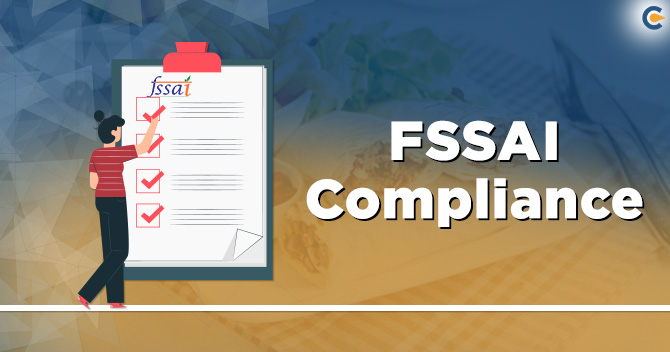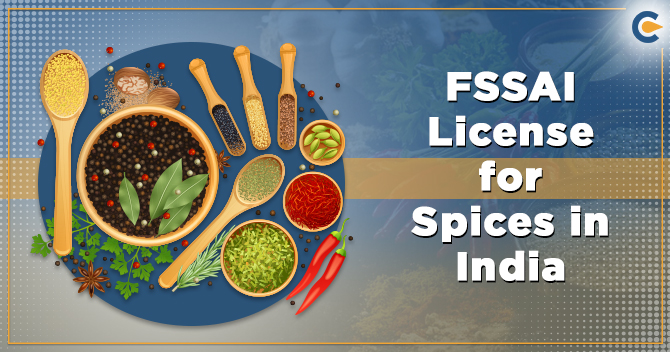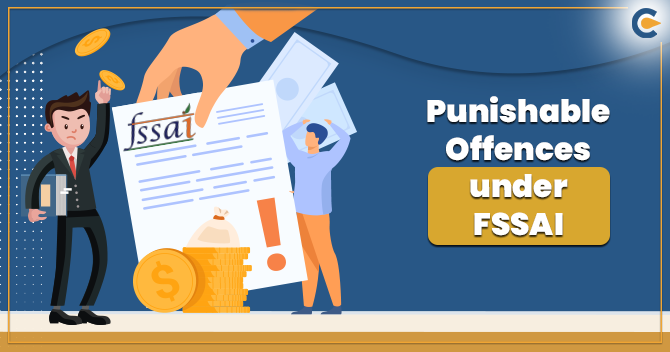The food manufacturing business has quickly succeeded over recent years. Numerous food passages like restaurants, cafes, cafeterias have engaged every street and corner of India. Nevertheless, it appears to be a probable business prototype; one cannot supervise the FSSAI necessities that one needs to abide by. Consequently, the Department of Health & Family Welfare manages FSSAI to guarantee a specific application of the FSS Act, 2006.
What is FSSAI Compliance?
The controlling body of the Food Safety and Standard Authority of India recommends science-based values of food. The list for FSSAI compliance also lies down frequent rules and guidelines in regards to delivery, production, importation, storing, and rummage sale of food. Thus, FSSAI guarantees that the inhabitant of our country only devours wholesome and safe food.
Chief Objective of the Food Safety and Standards
Food Safety and Standards Act (FSSAI), 2006, obligates all food business operators to adhere to certain FSSAI compliances. The fundamental agreement is to attain FFSAI license and function under the FSSAI Regulations, 2011. To begin the activities of farming, manufacturing, selling, retailing, labeling, the food business operatives must obtain the FSSAI license first. The sole detached of the Act is to verify the safety, cleanliness, and hygienic standards of food goods obtainable by Food Business Operatorss. Thus, protection the awareness of civilization.
Universal Requirements for Food Business Operator
The Food Safety and Standards Act of India, 2006, render an explicit checklist for FSSAI compliance that every food operator must imitate.


Use of food additive or processing aid
No food products should comprise any food chemical or processing aid till it is in communication with the requirements and guidelines under FSS aid.
Renounce of contaminants and toxic substances
No food products must have any additional of impurities, naturally emerging toxic materials or heavy metals.
Remove the use of pesticides, veterinary drugs, and antibiotic residues
No food products intend to comprise the remains of pesticides or insecticides, antibiotics, drugs, veterinary solvent, and pharmacologically active substances.
Ban on the distribution of organic, modified, proprietary foods and functional
As per the regulations of FSS Act, no food operator shall issue or produce any novel food. It further forbids the supply of irradiated, functional foods, organic, health supplements and the food used for special dietary.
The packaged food must provide accurate information by way of labelling.
Firstly, the information on the food products should be written either in English, Hindi, or Devanagari language only. Also, there shall be no wrong or ambiguous information that could form an incorrect impression of the product.
No separate distribution of food labels
The Food Safety and Security Act, 2006 (FSS)[1], prohibits that nobody shall offer the label on the pre-packaged food separate from the container.
Information on the label must be readable and legible
Information that need to be imprinted on the container should be a bright and readable content that consumers can understand in ordinary courses.
Necessary information should be mentioned on the container
The wrappers or labels of the packaged food must contain all the required data in a readable format through the outer wrapper as well as inner.
Read our article: Enforcement of the FSS ACT – An Overview
List of Punishable Offences and Penalties under FSSAI Compliance
After procuring the FSSAI license, the license holder comes under the supervision of FFSAI regulatory authority. Hence, it becomes crucial to follow all the rules and regulations of the law in hand. In case you breach any of such provisions, then you may have to tolerate punishment and penalties attached to it.
Various penalties are as follows: –
- For selling unsafe food
If any person is guilty to sell hazardous food article for human consumption, he/she will be punishable where the contravention.
- Offense of adulteration
Anyone who is responsible for the distribution of contaminated food shall pay the penalty that may extent to Rs. 2 lakhs if the adulterant is not harmful to health and up to Rs. 10 lakhs if the adulterant is injurious to health.
- Failure to comply with the FSS Act
A person is liable to for the penalty of 2 lakh when a food business operator does not comply with the rules and regulations of the FSS Act.
- Misleading consumers with false advertisement
Any advertisement should not deceive the consumers about the nature, substance or quality of the food in such circumstances, one has to pay ten lakhs due to false guarantee.
- Misbranded food products
Any person found guilty of engineering or selling misbranded food products will be liable to pay a penalty of up to Rs. 3 (Three) lakhs.
- Not selling quality food
It is obligatory for every food seller to meet a prescribed food quality standard. In case a person fails to fulfil the statutory quality, then he has to accept a penalty of Rs.5 lakh. Further, if the person falling under Sub-Section (2), Section 31, for any non-compliance before in hand then, he is liable to a penalty not exceeding to Rs. 25,000.
- Running a food business without FSSAI license
If is compulsory for all the food business operator to have a valid FSSAI license while running a food outlet, if not, he/she will be liable to imprisonment of up to six months along with a fine that may extent to Rs. 5 lakhs.
- Any wrongful act which Does not result in significant injury
It isPunishable for an imprisonment of up to 6 months and fine up to Rs. 1 Lakh.
- Any wrongful act which Results into non-grievous injury
It is attracted byan imprisonment term of up to a year and fine up to Rs. 3 Lakh.
- Act causing grievous injury
Itshall bear an imprisonment with term of up to 6 years and fine up to Rs. 5 Lakh.
- Act which Results into death
Since it is a hennies offense, hence the concerned person is subject to imprisonment of not less than seven years may further extend up to life imprisonment. Further, he also has to pay a penalty of not less than Rs. 10 Lakh.
Conclusion
The compliance checklist of FSSAI specifies the provisions that every food business operator should follow. Any lapse in meeting the Food Safety and Standard regulations or prescribed regulations can result in weighty penalties. Due to the strict FSSAI rules, it becomes difficult to procure the food license. The CorpBiz team shall be at your disposal if you require any assistance in fulfilling FSSAI Complaince and its Registrational aspects. We shall be happy to serve you.
Read our article: What is National Food Security Card, and How to download it?











